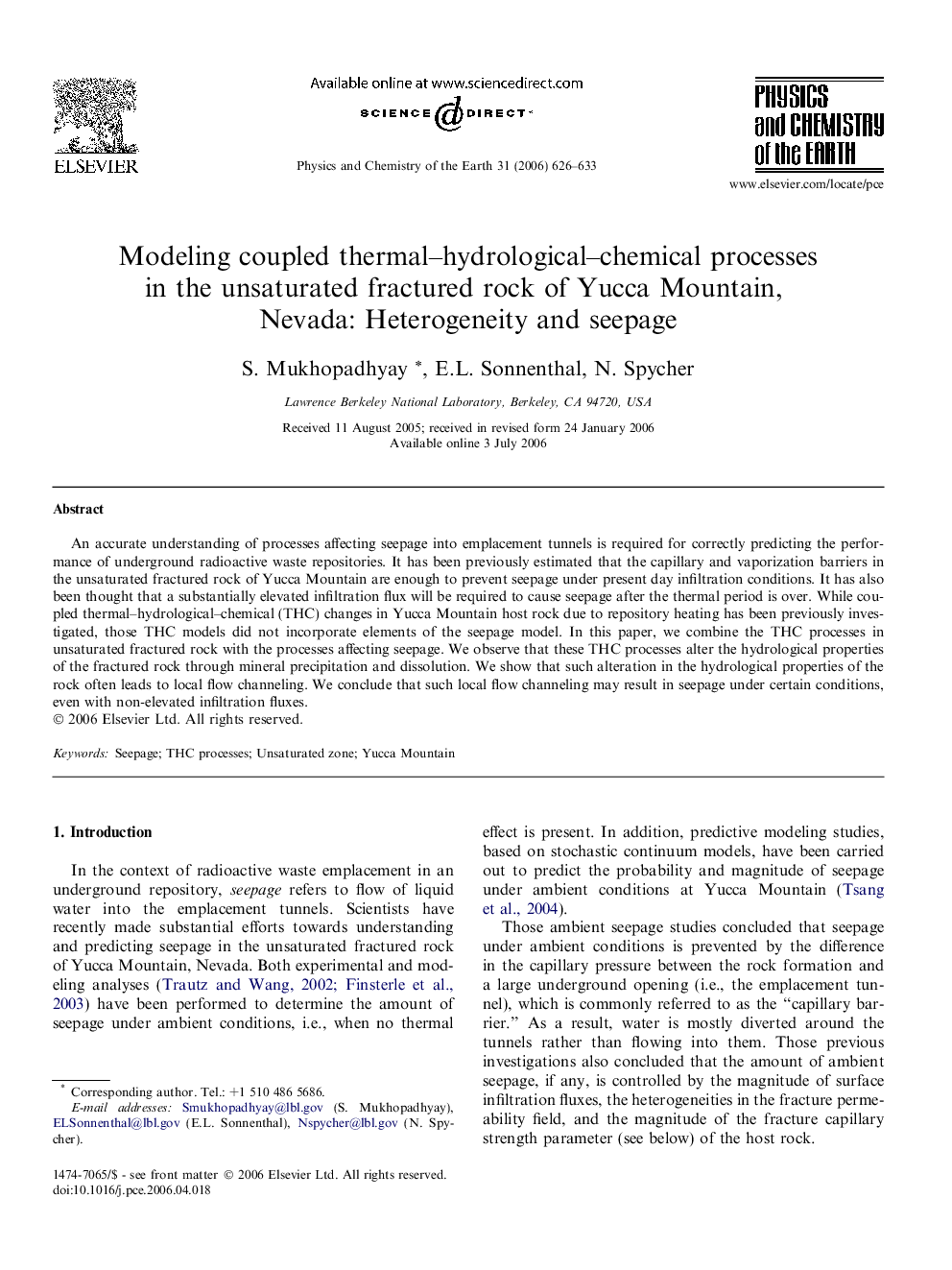| Article ID | Journal | Published Year | Pages | File Type |
|---|---|---|---|---|
| 4722094 | Physics and Chemistry of the Earth, Parts A/B/C | 2006 | 8 Pages |
An accurate understanding of processes affecting seepage into emplacement tunnels is required for correctly predicting the performance of underground radioactive waste repositories. It has been previously estimated that the capillary and vaporization barriers in the unsaturated fractured rock of Yucca Mountain are enough to prevent seepage under present day infiltration conditions. It has also been thought that a substantially elevated infiltration flux will be required to cause seepage after the thermal period is over. While coupled thermal–hydrological–chemical (THC) changes in Yucca Mountain host rock due to repository heating has been previously investigated, those THC models did not incorporate elements of the seepage model. In this paper, we combine the THC processes in unsaturated fractured rock with the processes affecting seepage. We observe that these THC processes alter the hydrological properties of the fractured rock through mineral precipitation and dissolution. We show that such alteration in the hydrological properties of the rock often leads to local flow channeling. We conclude that such local flow channeling may result in seepage under certain conditions, even with non-elevated infiltration fluxes.
